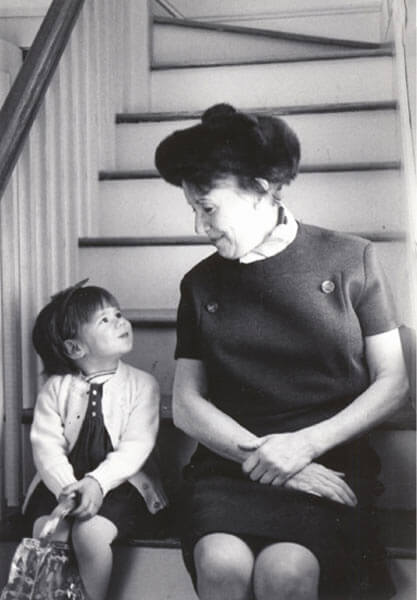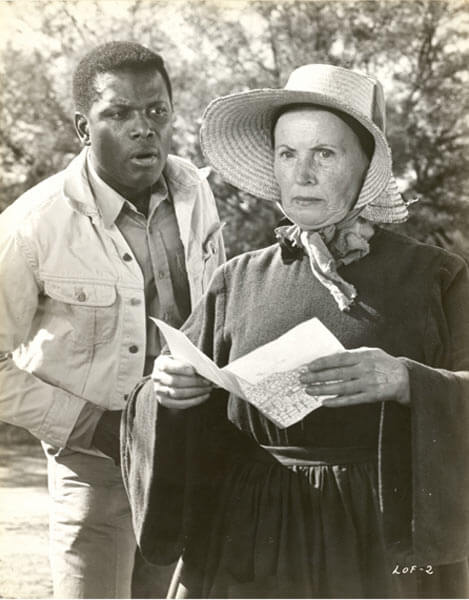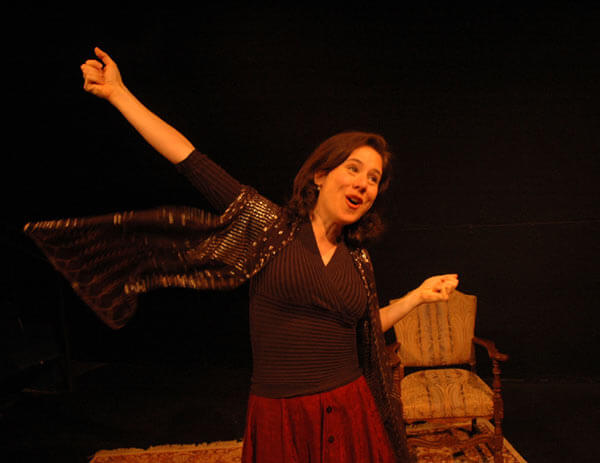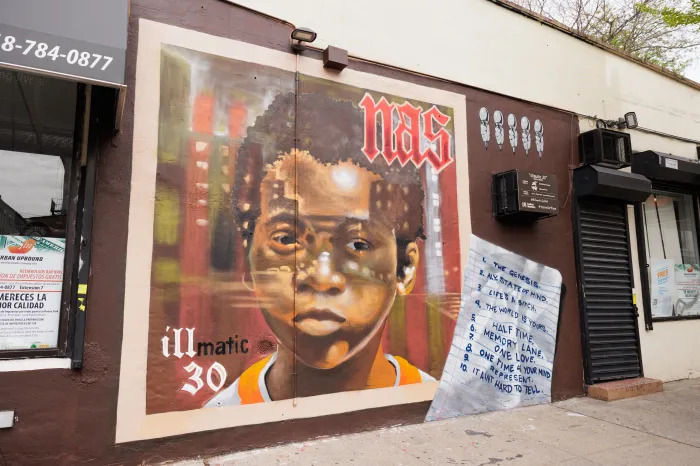By Kevin Zimmerman
When Lilia Skala arrived in Sunnyside, Queens in 1939 she spoke not one word of English, but a little more than two decades later she would star alongside Sidney Poitier in “Lilies of the Field” and receive an Academy Award nomination for her performance.
The Austrian-born actress, who lived at 39-19 49th St. until a messy divorce forced her to move to Elmhurst in 1959, will soon become a permanent part of her former neighborhood when the Sunnyside Gardens Preservation Alliance unveils a National Register plaque at her old home on Oct. 26.
“I was touched by that idea,” Libby Skala, Lilia’s granddaughter, said. “Following her divorce, she had been evicted from her own house. She was forced to leave. This seems like poetic justice in a way.”
On Oct. 26, Libby Skala will also present her one-woman show, “LILIA!” which details her grandmother’s extraordinary journey from Austria’s first female architect to European stage actress to immigrant to movie star.
As a child in Vienna, Lilia longed to be an actress, but as a member of the upper-middle class, such aspirations were on par with working as a prostitute, said the younger Skala. Instead, she opted for a career in architecture and headed off to the University of Dresden in Germany to complete her education.
“She always thought architecture was like acting,” said Skala. “You would slip into the mentality of the person you are designing for. For her, it was like playing a character.”
Although Lilia excelled in her profession, she never lost her desire to act, Skala said. It even played a small part in her accepting a marriage proposal. Lilia took sample letters from a couple of her beaus to a handwriting expert, Skala said. When the expert pointed out which writing showed a man who was very flexible and without a big ego, Lilia knew she had found her husband.
“As soon as she married my grandfather, she told him, ‘I want to be an actress,’” Skala said.
Being flexible and without a big ego, Lilia’s husband soon arranged for his wife to audition for Max Reinhardt, a leading theatrical producer in Germany and Austria. Once ensconced in Reihardt’s troupe, Lilia toured Europe garnering critical and public acclaim, Skala said.
That probably would have been the end of the story except the rise of Adolph Hitler and the outbreak of World War II forced Lilia and her husband to flee Vienna and they made their way to Queens.
There were no acting jobs on or off-Broadway for a 40-something Austrian woman who spoke no English, said Skala. So Lilia took a job at Waldes Zipper factory in Long Island City and studied English at night.
“This woman had been so dignified,” Skala said. “Now she’s working in a factory behind a machine.”
Eventually, Lilia would work as a bus boy, waitress and mutual fund seller. But she would continue to audition and landed a role in the Broadway production of “Letters to Lucerne.”
Her American stage career sputtered along with only a few parts through the 1940s, Skala said.
“She had such a strong accent and there weren’t really a lot of roles for a woman in her late 40s and early 50s,” said Skala. “And no agent would represent her. She always said God was her agent.”
As is commonly stated, God works in mysterious ways and in Lilia’s case he worked through the guise of Ethel Merman.
Lilia landed the part of Grand Duchess Sophie on Broadway in the Merman vehicle “Call Me Madam.” For more than a year Lilia played eight shows a week alongside Merman. And when the show was made into a movie, Lilia was the only cast member, besides Merman, to reprise her role.
Although she made the transition to film, Lilia remained a Queens resident working odd jobs between the TV-acting gigs in Manhattan.
In the early 1960s, Lilia saw a newspaper blurb that director Ralph Nelson, who she had worked with on television projects, was making a movie about nuns.
“She wrote him a letter asking if one of the nuns could have an accent,” Skala said.
Nelson asked Lilia to come out to Los Angeles to talk about his new movie, “Lilies of the Field.”
The movie is about a group of German nuns who believe God has sent a drifter, played by Sidney Poitier, into their lives to help them build a new chapel. Filmed in just two weeks, Lilia was paid the SAG-minimum of $500 a week.
She may have only made $1,000, but the part, which earned her an Academy Award nomination for best supporting actress, launched her movie career, said Skala. Lilia was 64 years old when the film was made.
“Her career took off from there,” Skala said. “William Morris [Agency] signed her. She did lots of films after that.”
Lilia appeared in “Ship of Fools,” “Charly,” “Heartland,” “Flashdance” and “House of Games.”
She died in 1994 at the age of 98.
Skala, who is also an actress and playwright, started working on “LILIA!” after an improvisation class assignment required her to talk about someone interesting and compelling. She immediately thought of her grandmother.
“She was an immigrant who came to the U.S. with nothing,” Skala said. “With persistence, vision, determination and following one’s heart, she realized the American Dream. Now that can be inspiring.”
If You Go
Sunnyside Gardens Preservation Alliance plaque unveiling
When: Saturday, Oct. 26, at 4:30 pm
Where: 39-19 49th St., Sunnyside
Performance of “LILIA!”
When: Saturday, Oct. 26, at 7 pm
Where: Sunnyside Reformed Church, 48-03 Skillman Ave., Long Island City

































